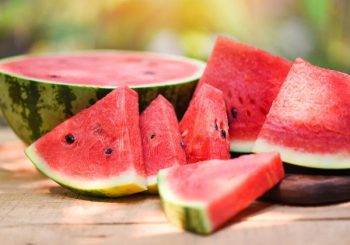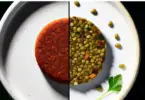By Sayer Ji
Contributing writer for Wake Up World
The ultimate summer fruit is ripe for the picking when it comes to a wealth of health benefits. More than just a refreshing dessert or treat for the hotter days, watermelon is a proven medicinal food at any season of the year.
With the scientific name Citrullus lanatus, watermelon is a fruit that belongs to the Cucurbitaceae family.[i] While native to the Kalahari Desert in Africa, it is cultivated in the world’s various tropical regions today.
[pro_ad_display_adzone id=”110028″]
Watermelons are a much-valued source of antioxidants, particularly lycopene and ascorbic acid, and citrulline, and may help protect against chronic issues such as cardiovascular disease and cancers. [ii] Lycopene gives fruits and vegetables their distinctive red color. In a 2003 study, consuming regular watermelon juice led to significant increases in blood plasma concentrations of lycopene and beta carotene.[iii]
As 92% water, watermelon helps you stay hydrated and this is one of the reasons why fruits and vegetables promote a feeling of satiety.[iv] Interestingly, despite its high water content, a 2011 study highlighted watermelon seeds as a good source of dietary protein.[v] Here are some of the top benefits of watermelons for health and wellbeing.
1. Cancer Prevention
Increased intake of fruits and vegetables was linked to a decreased risk of breast cancer among Chinese women.[vi] The tested fruit and vegetable groups included dark leafy greens, cruciferous vegetables, carrots and tomatoes, bananas and watermelon.
The same inverse relationship between carotenoid-rich vegetables and lung cancer risk was found from the results of the Shanghai Men’s Health Study from 2002 to 2009, as well as between vegetables and fruits rich in lycopene and carotenoids and prostate cancer risk in a case-control study conducted in Hangzhou, southeast China.[vii],[viii]
The reduction of cancer risk appears to be due, in part, to the lowering of insulin-like growth factor (IGF), a protein that plays a role in cell division. High IGF levels are associated with cancer.[ix]
2. Fight Metabolic Syndrome
A promising preclinical study in 2007 showed that watermelon pomace, an abundant source of L-citrulline, significantly improved metabolic syndrome in diabetic and overweight animal models.[x] This also helps disprove claims that fruit intake harms people with Type 2 diabetes.[xi]
Watermelon juice in particular showed anti-diabetes potential.[xii] A 2020 study demonstrated that the juice exhibited anti-diabetic action in an experimental diabetic animal model through modulation of glucose transporters, anti-inflammatory activities and an antioxidant defense system.
3. High Blood Pressure and Weight Regulation
Supplementing with watermelon extract had a beneficial effect on arterial function and blood pressure, particularly among obese middle-aged adults with prehypertension or stage 1 hypertension.[xiii]
Watermelon juice also prevented increased post-exercise systolic and diastolic blood pressure in females, but not in males, in a 2019 study.[xiv] “More research is warranted to examine the effect of sex on the efficacy of watermelon consumption for controlling BP,” wrote the researchers.
Among prehypertensive individuals, supplementing with the fruit also improved aortic blood pressure and wave reflection, an indicator of arterial function.[xv] Further, with its pro-cardiovascular properties, the lycopene in watermelon was found in studies among obese, postmenopausal women and Finnish men to reduce the stiffness and thickness of artery walls.[xvi],[xvii]
In a 2019 study, consuming two cups of watermelon daily reduced not only blood pressure but also body weight.[xviii] The study compared the effects of consuming the fruit versus a low-fat cookie snack for four weeks on body weight, blood pressure, glucose and insulin levels and biomarkers for inflammation, oxidative stress and liver function.
“As a natural food that provides fiber, micronutrients and bioactive phytochemicals, watermelon may be a healthier alternative to conventional snacks,” the researchers wrote.
4. Prevention of Macular Degeneration
Lycopene is found in parts of the human eye and helps protect against both oxidative damage and inflammation. Thus, it may also help prevent age-related macular degeneration, a common blindness-causing condition in the elderly.[xix]
In an experimental study, subjects with low lycopene serum concentrations were at a high risk of macular degeneration.[xx] Lycopene was also seen in a separate study to effectively address immunodeficiency disorders such as HIV and cerebral microangiopathy, a cause of cognitive impairment.[xxi]
Learn more about the health benefits of watermelon against a diverse lineup of diseases on the GreenMedInfo.com database.
References:
[i] Naz A et al “Watermelon lycopene and allied health claims” EXCLI J. 2014; 13: 650-660. Epub 2014 Jun 3.
[ii] Naz A et al “Watermelon lycopene and allied health claims” EXCLI J. 2014; 13: 650-660. Epub 2014 Jun 3.
[iii] Edwards A et al “Consumption of watermelon juice increases plasma concentrations of lycopene and beta-carotene in humans” J Nutr. 2003 Apr;133(4):1043-50.
[iv] Naz A et al “Watermelon lycopene and allied health claims” EXCLI J. 2014; 13: 650-660. Epub 2014 Jun 3.
[v] Wani A et al “Characterisation and functional properties of watermelon (Citrullus lanatus) seed proteins” J Cancer Res Clin Oncol. 2011 Feb;137(2):279-86. Epub 2010 Apr 18.
[vi] Zhang C et al “Greater vegetable and fruit intake is associated with a lower risk of breast cancer among Chinese women” Int J Cancer. 2009 Jul 1;125(1):181-8.
[vii] Takata Y et al “Intakes of fruits, vegetables, and related vitamins and lung cancer risk: results from the Shanghai Men’s Health Study (2002-2009)” Nutr Cancer. 2013 ;65(1):51-61.
[viii] Jian L et al “Do dietary lycopene and other carotenoids protect against prostate cancer?” Int J Cancer. 2005 Mar 1;113(6):1010-4.
[ix] Bowers L et al “The Role of the Insulin/IGF System in Cancer: Lessons Learned from Clinical Trials and the Energy Balance-Cancer Link” Front Endocrinol (Lausanne). 2015 May 15;6:77.
[x] Wu G et al “Dietary supplementation with watermelon pomace juice enhances arginine availability and ameliorates the metabolic syndrome in Zucker diabetic fatty rats” J Nutr. 2007 Dec;137(12):2680-5.
[xi] Christensen AS et al “Effect of fruit restriction on glycemic control in patients with type 2 diabetes–a randomized trial” Nutr J. 2013 Mar 5;12:29.
[xii] AJiboye B et al “Antidiabetic activity of watermelon () juice in alloxan-induced diabetic rats” J Diabetes Metab Disord. 2020 Jun ;19(1):343-352. Epub 2020 Apr 28.
[xiii] Figueroa A et al “Watermelon Extract Supplementation Reduces Ankle Blood Pressure and Carotid Augmentation Index in Obese Adults With Prehypertension or Hypertension” Am J Hypertens. 2012 Mar 8. Epub 2012 Mar 8.
[xiv] Blohm K et al “Effect of acute watermelon juice supplementation on post-submaximal exercise heart rate recovery, blood lactate, blood pressure, blood glucose and muscle soreness in healthy non-athletic men and women” Int J Food Sci Nutr. 2019 Oct 10:1-8. Epub 2019 Oct 10.
[xv] Figueroa A et al “Effects of watermelon supplementation on aortic blood pressure and wave reflection in individuals with prehypertension: a pilot study” Am J Hypertens. 2011 Jan;24(1):40-4. Epub 2010 Jul 8.
[xvi] Figueroa A et al “Effects of watermelon supplementation on arterial stiffness and wave reflection amplitude in postmenopausal women” Menopause. 2013 May;20(5):573-7.
[xvii] Karppi J et al “Serum Carotenoids Reduce Progression of Early Atherosclerosis in the Carotid Artery Wall among Eastern Finnish Men” PLoS One. 2013; 8(5): e64107. Epub 2013 May 21.
[xviii] Lum T et al “Effects of Fresh Watermelon Consumption on the Acute Satiety Response and Cardiometabolic Risk Factors in Overweight and Obese Adults” Nutrients. 2019 Mar; 11(3): 595. Epub 2019 Mar 12.
[xix] Naz A et al “Watermelon lycopene and allied health claims” EXCLI J. 2014; 13: 650-660. Epub 2014 Jun 3.
[xx] Naz A et al “Watermelon lycopene and allied health claims” EXCLI J. 2014; 13: 650-660. Epub 2014 Jun 3.
[xxi] J Clin Hypertens (Greenwich). 2011;13:582-587. https://onlinelibrary.wiley.com/doi/epdf/10.1111/j.1751-7176.2011.00493.x
Recommended Articles by Sayer Ji:
- The Power and Mystery of Melanin Explained
- Cell Phone Induced Bodily Harm: How the Bees Can Help
- The Spice That Prevents Fluoride Destroying Your Brain
- How to Clean Your Arteries with One Simple Fruit
- 7 Healing Uses for Lavender Essential Oil
- From Table to Tomb: Cumin’s Health Benefits Rediscovered
- Why You Should Ditch Sugar in Favour of Honey
- The Love Affair Between Saffron and Humanity: As Ancient as Time Itself
- Why Walnut Resembles the Brain It Nourishes
- Magnesium Puts Psychiatric Drugs to Shame for Depression
About the author:
Sayer Ji is the founder of Greenmedinfo.com, a reviewer at the International Journal of Human Nutrition and Functional Medicine, Co-founder and CEO of Systome Biomed, Vice Chairman of the Board of the National Health Federation, and Steering Committee Member of the Global Non-GMO Foundation.
© 2020 GreenMedInfo LLC. This work is reproduced and distributed with the permission of GreenMedInfo LLC. Want to learn more from GreenMedInfo? Sign up for their newsletter here.
[pro_ad_display_adzone id=”110027″]








